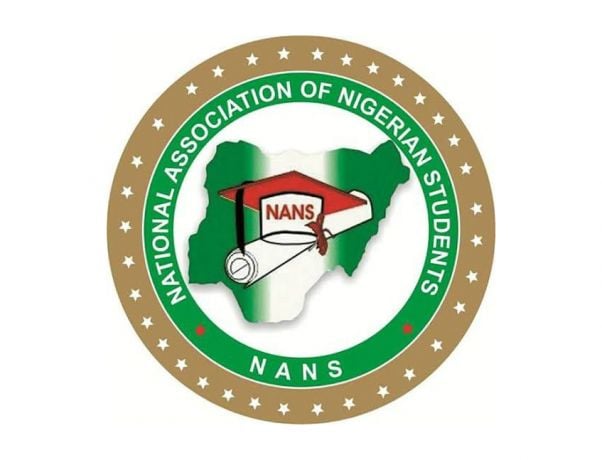The National Association of Nigerian Students (NANS) has given both the Federal Government (FG) and the Academic Staff Union of Universities (ASUU) a seven-day ultimatum to resolve their ongoing dispute or risk massive student protests nationwide. This comes amid renewed tensions between the government and the university lecturers’ union, following ASUU’s recent warning strike that disrupted academic activities in several universities across the country.
The student body, under the leadership of Comrade Olushola Oladoja, issued the ultimatum in a strong statement addressing the rising concerns about the possible escalation of the ASUU strike, which threatens to cripple the ongoing academic calendar in Nigerian universities.
Students Express Frustration Over Another Disruption
In the statement, NANS expressed deep frustration over the continuous disagreements between ASUU and the Federal Government, emphasizing that Nigerian students should not continue to bear the brunt of poor communication and failed negotiations.
According to NANS President Oladoja, the association finds it unacceptable that students—who have already lost valuable academic time during past strikes—are once again being forced to endure uncertainty. He lamented that many undergraduates have suffered prolonged academic delays due to previous industrial actions, with some spending up to seven years on four-year programmes.
Oladoja stressed that the seven-day ultimatum is not merely a threat but a passionate call for both sides to return to the negotiating table and find a sustainable solution that guarantees academic stability.
Appeal to President Tinubu for Swift Intervention
The NANS president appealed directly to President Bola Ahmed Tinubu, urging him to personally intervene in the matter to prevent further escalation. He noted that since the inception of Tinubu’s administration, the nation had enjoyed relative peace in the education sector, with no major ASUU strikes recorded in over two academic sessions—a record that should not be broken now.
NANS emphasized that the current dispute could undo the progress made in recent years and undermine the confidence of students and parents in the Nigerian public university system. The student body therefore urged the Presidency to call an emergency meeting between the Ministry of Education, ASUU leadership, and other relevant stakeholders to ensure that lingering issues are quickly addressed.
ASUU’s Demands and the Root of the Dispute
ASUU’s grievances, according to its leadership, revolve around several unresolved commitments from the government. These include:
| ASUU’s Major Demands | Description |
|---|---|
| Implementation of the 2009 Renegotiated Agreement | The lecturers’ union insists that the Federal Government must implement the revised agreement covering improved salaries, welfare, and working conditions for university staff. |
| Payment of Withheld Salaries and Arrears | ASUU is demanding full payment of salaries withheld during previous strike periods, as well as outstanding promotion arrears for academic staff. |
| Revitalization of Public Universities | The union calls for renewed funding for infrastructure, research, and learning facilities in public universities to address years of neglect. |
| Autonomy and Governance Issues | ASUU seeks greater autonomy for universities to manage their internal affairs without unnecessary government interference. |
ASUU maintains that its position is not only about staff welfare but also about the long-term sustainability and quality of education in Nigerian institutions. The union argues that without adequate funding and proper implementation of agreements, Nigerian universities will continue to lag behind global standards.
Students Threaten Nationwide Protest
In a strongly worded message, NANS warned that failure to meet its seven-day demand would lead to massive, coordinated protests across all states of the federation. The student body stated that it would not sit idly by while students are forced to remain at home due to recurring industrial actions.
Oladoja emphasized that Nigerian students have been patient for too long and will no longer tolerate disruptions to their education. He said NANS is prepared to mobilize across campuses and major cities if the government and ASUU fail to find common ground within the stipulated timeframe.
“This is not just about negotiation; it’s about accountability to the millions of students who deserve consistent academic progress,” the NANS president declared.
Education Stakeholders React
Several education analysts and student leaders across the country have praised NANS for taking a proactive stance, describing the ultimatum as a necessary wake-up call for both ASUU and the government. They noted that consistent strikes have led to declining confidence in Nigeria’s public universities, with many students seeking alternatives abroad or in private institutions.
An education policy expert also pointed out that prolonged strikes contribute significantly to brain drain, as many lecturers seek opportunities in countries with more stable academic systems.
Public Universities at Risk of Another Shutdown
The ASUU warning strike, which recently halted examinations and academic activities in many campuses, has raised fears that a full-scale strike may be imminent if the Federal Government does not act swiftly. Many universities have suspended key programmes, while students remain anxious about losing yet another semester.
NANS has reiterated that time is of the essence, and both parties must prioritize the nation’s education sector over political or administrative disagreements. The association called on the Minister of Education to play a more active role in coordinating dialogue and ensuring transparency in communication between the two sides.
A Call for Lasting Peace in the Education Sector
In its closing statement, NANS expressed hope that both the Federal Government and ASUU will heed the call for peace and compromise. The student body emphasized that the time has come to adopt a more permanent and proactive approach to resolving disputes in the tertiary education system.
“Our universities cannot continue to operate in cycles of crisis and resolution,” NANS stated. “Education should be a tool for development, not a victim of constant disagreement.”
Conclusion
As the seven-day ultimatum counts down, all eyes are now on both the Federal Government and ASUU to see whether they can find common ground before tensions escalate. Students, parents, and education stakeholders across the country are anxiously watching for updates, hoping that this time, Nigeria’s university system will finally find lasting peace.
The next few days will determine whether this latest conflict becomes another full-blown national crisis—or a turning point toward stability in Nigeria’s higher education sector.



